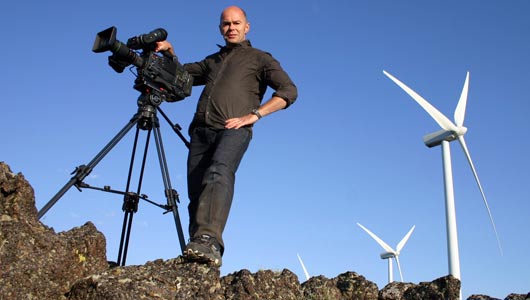
Movie Review: Earth Days
Robert Stones new documentary, Earth Days, opens this week, as opponents of global warming seem to have found a new “scientific” truth to attack: the birth of Barack Obama in the United States. The closing film of this years Sundance Film Festival, Stones inquiry takes us back to the first Earth Day, in 1970 – yes, the title is a pun that few in Stones potential audience will get at first, if at all.
Its been a good summer for environment documentaries, with The Cove and Food Inc. Stone adds to the season, examining the early, ambitious and optimistic days of the environmental movement, before its opponents determined how to discredit it.
Stones previous films include the haunting Guerrllla: The Taking of Patty Hearst, a look back to one of the craziest political circuses that American politics produced. His latest before Earth Days was Oswalds Ghost, about the persistence of conspiracy theories around the JFK assassination, and what really happened. Needless to say, Oliver Stones JFK made more money, but Stone got it right. Oswald did it, by himself. Sorry guys.

Director Robert Stone is hoping his new film "Earth Days" will make a difference. (Photo courtesy of Zeitgeist Films)
Earth Days recalls the days when junk science attacking real science scorned as much as creationism was. Anti-science and anti-evolution was dismissed as quackery for evangelicals, who werent taken seriously either. So much for progress. This also was before Americans had fallen in love with SUVs, and before mining companies could level entire mountains with coal inside, with the White Houses blessing.
The good news is that the human race is still here. Bear in mind that there were respected scientists in the 1970s who feared nuclear weapons would ensure the human races annihilation before 2000. There were also respected academics who believed that the planet could not sustain the population that was expanding. Dont assume that their fears about nuclear weapons and population growth were wrong. It may just be that their timing was off.
Stone follows characters through his story, all of whom favor environmental preservation. Paul Ehrlich talks about population. Dennis Hayes remembers the first Earth Day. Pete McCloskey, a moderate Republican congressman from California (who would turn against Nixon), laments that much of the abandonment of environmentalism suited the Republican agenda. It still seems to.
In the early 1970s, the awareness of risks facing the earth had come a long way. The National Enviromental Policy Act (NEPA) was passed under Nixon, as was the Endangered Species Act. Remember that, under Jimmy Carter, there was a Solar Energy Research Institute in the shadow of the Coors Brewery in Golden, Colorado, funded by the federal government. Ronald Reagan killed SERI, and took the solar panels off the White House roof in 1986, about the same time that Reagan was sending arms to the contras in Nicaragua.
By 1980, the romance of ecology was fading and Reagan was on the rise. We lost 30 years, the author and activist Hunter Lovins tells Stone. 30 years and the Exxon Valdez and a war over oil in Iraq. Stones next film looks at America, post-1980, and at how the Right held environmentalism back. These are the people who brought you, “Drill, Baby Drill.” They made lots of money turning the clock back.
